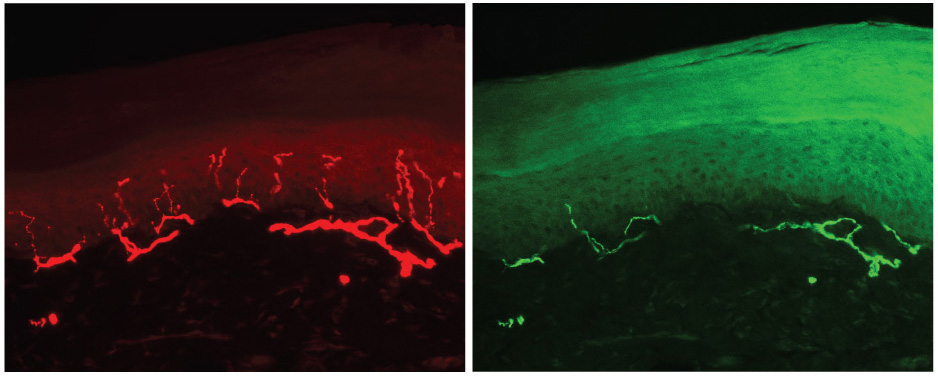Ciara Curtin is a freelance science writer based in Atlanta. Her work focuses mostly on genetics and medicine. Ciara has an M.A. in molecular, cellular and developmental biology from the University of California, Santa Barbara, and one in journalism from New York University’s science writing program.

Ciara Curtin
From this contributor
Brain scans reveal subtypes of fragile X syndrome in boys
Differences in brain structure may distinguish boys with relatively mild features of fragile X syndrome from those with a severe form of the condition.

Brain scans reveal subtypes of fragile X syndrome in boys
Data do-over backs dominance of genetics in autism risk
A reanalysis of data from more than 2 million children in Sweden suggests inherited genetic factors account for 83 percent of autism risk.

Data do-over backs dominance of genetics in autism risk
Rat study ties Rett syndrome gene to pain processing
Mutations in MECP2, the gene mutated in Rett syndrome, may alter the proportions and activity of sensory neurons in rats.

Rat study ties Rett syndrome gene to pain processing
Autism drugs may alter brain connectivity
Children with autism who take certain medications have different patterns of brain connectivity than do unmedicated children with the condition.
Twin tots reveal autism traits arise mostly from genes
Genes are bigger contributors to autism features than are environmental factors, according to a study of nearly 39,000 twins.

Twin tots reveal autism traits arise mostly from genes
Explore more from The Transmitter
Frameshift: Raphe Bernier followed his heart out of academia, then made his way back again
After a clinical research career, an interlude at Apple and four months in early retirement, Raphe Bernier found joy in teaching.

Frameshift: Raphe Bernier followed his heart out of academia, then made his way back again
After a clinical research career, an interlude at Apple and four months in early retirement, Raphe Bernier found joy in teaching.
Organoid study reveals shared brain pathways across autism-linked variants
The genetic variants initially affect brain development in unique ways, but over time they converge on common molecular pathways.

Organoid study reveals shared brain pathways across autism-linked variants
The genetic variants initially affect brain development in unique ways, but over time they converge on common molecular pathways.
Single gene sways caregiving circuits, behavior in male mice
Brain levels of the agouti gene determine whether African striped mice are doting fathers—or infanticidal ones.

Single gene sways caregiving circuits, behavior in male mice
Brain levels of the agouti gene determine whether African striped mice are doting fathers—or infanticidal ones.
